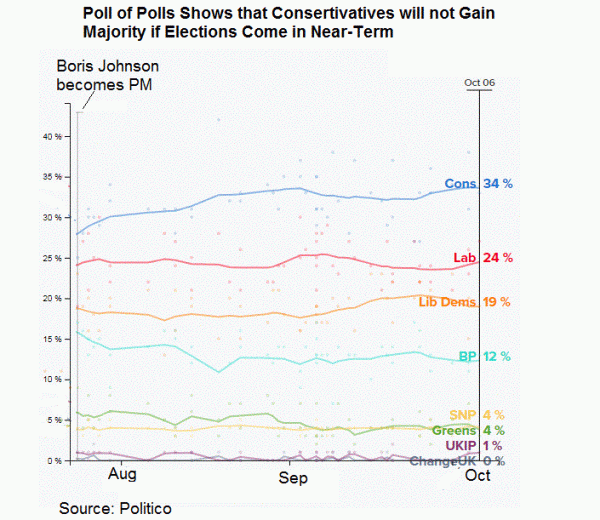British pound plunged on news that EU members would unlikely accept the new Withdrawal Agreement proposed by UK PM Boris Johnson. Market anxiety intensified as a report by The Times suggesting that German chancellor Angela Merkel demanded for Northern Ireland to stay in a customs union with the EU after Brexit. This implies that the proposed deal is “essentially impossible, not just now but ever”. Moreover, European Council president Donald Tusk criticised Johnson’s negotiation approach. Tusk tweeted that “What’s at stake is not winning some stupid blame game. At stake is the future of Europe and the UK as well as the security and interests of our people. You don’t want a deal, you don’t want an extension, you don’t want an extension,…”. In our opinion, these are not new developments. The market was just correcting their overoptimistic reaction last few weeks. As we mentioned in the previous report, the chance that the deal can be approved by the EU, let alone UK parliament, is low.
The coming few weeks would be critical as the UK is scheduled to leave the EU by October 31. The new parliamentary session for the House of Commons will resume on October 14, while the EU summit will begin on October 17. According to the Benn Act, if either EU or the UK parliament rejects the proposal, PM Johnson would have to ask for further extension of Article 50 by October 19. Although PM Johnson has threatened to leave the EU as scheduled no matter what, there is a slim chance that he would risk breaking the law.
We see it is getting more likely that the government would have to seek further extension of Article 50 until January 31, 2020. An early election appears inevitable. Unfortunately, an early election is unlikely to help resolve the deadlock. Opinion polls suggest that a hung parliament is the most probable result if an election is held this year. The latest opinion poll shows that support for Conservatives is 34%, compared with 24% in Labors and 19% in Lib Dems. With no hint of cross-party cooperation between conservatives and the Brexit Party, or between Labors and the Lib Dems, it is difficult for any deal to get approved in the UK parliament.


